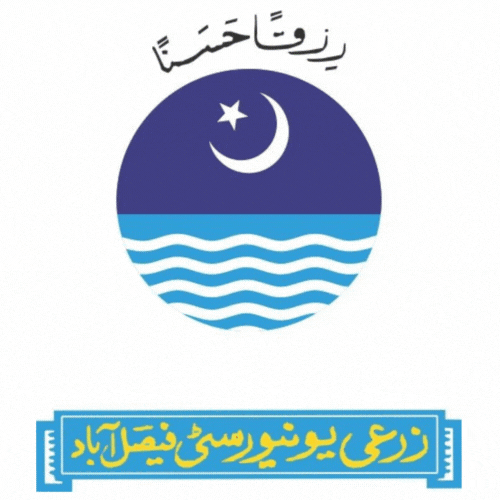
2-Day International Seminar and workshop on “Innovative Technologies: Precision Agriculture, Renewable Energy and Bio-system Modeling”
The speakers at a 2-Day International Seminar and workshop on “Innovative Technologies: Precision Agriculture, Renewable Energy and Bio-system Modeling” on Friday stressed the need of applying modern technologies and bring preciseness in all human practices either in domestic and industrial use but also in Agricultural and other fields as adoption of Precision Agriculture has the potential to promote the environment and increase the yield. The seminar was organized by Water Management Research Center (WMRC) and Dept. of Irrigation and Drainage of UAF at new senate hall. The Speakers were included Deputy Australian High Commissioner Paul Molloy, UAF VC Prof. Dr. Iqrar Ahmad Khan, Prof. Dr. Qamar Zaman Scientists from Dalhousie University, Dr. Tri Nguyen Quang, Prof. Dr. Muhammad Iqbal Dean Faculty of Agri. Engineering & Technology, Director WMRC UAF Prof. Dr. Allah Bakhsh, Dr. Anjum Munir, Dr. Syed Hamid Hussain Shah, Dr. Abdul Ghafoor, and Dr. Jahanzib Masood Cheema. Mr. Paul Molloy said that Precision farming implies a management strategy to increase productivity and economic returns with a reduced impact on the environment, by taking into account the variability within and between fields. He added that variability description; variable-rate technology and decision support systems are the key technologies for precision farming. He was of the view that precision farming on a regional level is one way to apply this approach to small-farm agriculture, but may also promote the development of rural areas. VC UAF Prof. Dr. Iqrar Ahmad Khan earlier said that the Precision Farming provides farmers with a tool to apply fertilizer according to the need of a particular sub-field. He maintained that the savings made with this variable can be fairly large. Dr. Khan said that this technology is certainty exciting and is bound to change the face of agriculture in the near future. He added that the Remote Sensing and GIS can be used in parameterization and calibration validation of hydrological models lowering the water table that out of 68 billion cubic meters about 40 is used by Pakistan and 28 is by India, VC UAF said that Indian Punjab is sucking Pakistani water as the farmers have free electricity for this purpose. Prof. Dr. Qamar-uz-Zaman while advocating the use of remote sensing database, said that during the last 6 years India and Pakistan witnessed 20 and 10 billion cubic meter water depletion respectively out of 68 billion cubic meter surface water, “We are inefficient in using water, fertilizer horsepower, human capital and other inputs that urged the need to precise our practices” he added. “If the country remains with the same practice, we will soon see the day of food insecurity for a large segment of the population” he warned. He stressed the need to learn how to be précised and think in terms of reforming the system and make the change sustainable. Dr. Tri Nguyen Quang said though UNO has introduced a Trans boundary aquifer law but many countries yet to sign it. He was of the view that key to maximizing farm profits is to increase the quantity or quality of a given product, all while minimizing inputs and environmental costs. He said these adjustments are often made at the enterprise level; however, there are opportunities for even greater profits if they are made site-specifically. Mr. Quang said that good decisions can not be made without good information. He added that the key to site-specific management decisions is tracking what happens on the site, particularly inputs and outputs relatively high-tech solutions may be necessary for large farms. Prof. Dr. Muhammad Iqbal said that improving crop productivity needs precise and timely application of Agriculture input. He added that if we look upon the categories of inputs responsible for increase in crop productivity then we should have to focus on biological inputs, crop verities, mechanical inputs fertilizers, pesticides and water inputs to meet the challenges. Prof Dr. Allah Bakhsh, Director WMRC, expressed his concerns over excessive pumping by farmers from Indian Punjab as on Indian side, the underground water is going down thus water at Pakistani side goes to down flow to Indian Punjab, which causes lose to the Pakistan as far as Water Table is concern. He said the crop yields in Pakistan are almost stagnant while the demand for food and fiber is increasing day by day. He said that our water storage capacity is very limited and that is of 30 days only compared with 120 days in India, 200 days of China and Australia whereas 500 days of USA. He was of the view that only option left with us is to increase the crop yield per unit of land and per unit of water. Dr. Muhammad Irshad conducted the Seminar, Mr. Ahmad Faraz Khan, Senior Journalist, Mr. Sultan Barq, Progressive Farmer, Chief Engineer Irrigation Faisalabad Division and other dignitaries and all the faculty members and students attended the Seminar.

